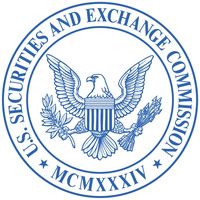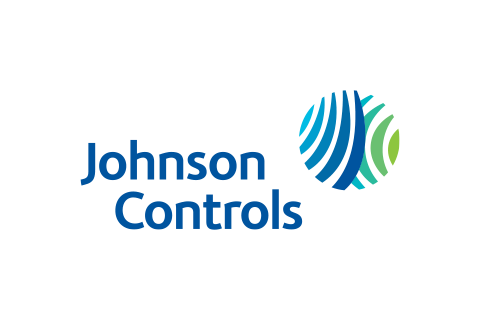Johnson Controls: Navigating Change and Growth Amid Leadership Transition
August 3, 2024, 12:58 am

Location: United States, District of Columbia, Washington
Employees: 1001-5000
Founded date: 1934
Total raised: $392.5M
In the world of corporate giants, change is the only constant. Johnson Controls International plc, a leader in smart and sustainable building solutions, is at a pivotal crossroads. Recent announcements reveal a solid financial performance alongside a significant leadership transition. The company is tightening its fiscal guidance while preparing for a new chapter under fresh leadership.
Johnson Controls reported its third-quarter results for fiscal year 2024, showcasing a modest sales increase of 1% year-over-year, reaching $7.2 billion. The company’s GAAP earnings per share (EPS) stood at $1.45, while adjusted EPS was $1.14. These figures reflect a steady hand on the wheel, navigating through turbulent economic waters. The company’s orders grew by 5% organically, indicating a healthy demand for its services.
The Building Solutions segment is the backbone of Johnson Controls. In North America, sales surged by 9%, driven by a robust demand for Applied HVAC & Controls. This segment alone generated $2.9 billion in sales, showcasing the company’s strength in the region. The backlog in this segment reached $9 billion, a 14% increase year-over-year, signaling a strong pipeline of future work.
However, not all regions performed equally. The Asia Pacific segment faced challenges, with sales plummeting by 22%. This decline was primarily due to a slowdown in the Systems business in China. The company’s EBITA margin in this region fell to 11.7%, down 220 basis points from the previous year. This disparity highlights the complexities of operating in diverse global markets.
Despite these challenges, Johnson Controls is not standing still. The company is tightening its full-year guidance, projecting adjusted EPS between $3.66 and $3.69. This reflects confidence in its ability to adapt and thrive, even in a fluctuating market. The guidance indicates an organic sales growth of approximately 3% for the year, a slight adjustment from previous expectations.
The leadership transition adds another layer of complexity. George R. Oliver, the current CEO, has announced his retirement, initiating a succession plan. He will remain as chairman of the board, ensuring continuity during this critical period. The board is actively searching for a successor, a move that underscores the company’s commitment to strategic evolution.
Oliver’s tenure has been marked by significant transformation. Under his leadership, Johnson Controls has shifted towards becoming a pure-play provider of comprehensive solutions for commercial buildings. This strategic pivot has positioned the company to capitalize on emerging opportunities in the building technology sector. The appointment of Patrick Decker to the board reflects a commitment to fresh perspectives and expertise. Decker’s experience in transforming companies aligns with Johnson Controls’ vision for the future.
The company’s focus on sustainability and smart building solutions is more than a trend; it’s a necessity. As global demand for energy-efficient and environmentally friendly buildings grows, Johnson Controls is poised to lead the charge. The integration of advanced technologies through its OpenBlue platform offers a glimpse into the future of building management. This digital offering enhances operational efficiency and sustainability, aligning with the growing emphasis on corporate responsibility.
Financially, Johnson Controls is in a strong position. The company generated $922 million in free cash flow during the third quarter, a testament to its operational efficiency. The decision to repurchase 6 million shares for approximately $402 million reflects confidence in its long-term value. Additionally, the company paid dividends of $249 million, rewarding shareholders while investing in future growth.
However, the road ahead is not without challenges. The global economic landscape is fraught with uncertainties, from inflationary pressures to geopolitical tensions. Johnson Controls must navigate these waters carefully, balancing growth with risk management. The ongoing restructuring efforts, including divestitures of non-core businesses, are part of a broader strategy to streamline operations and enhance shareholder value.
As Johnson Controls embarks on this new chapter, the leadership transition will be closely watched. The new CEO will inherit a company with a solid foundation and ambitious goals. The ability to maintain momentum while adapting to market changes will be crucial.
In conclusion, Johnson Controls stands at a crossroads. With a strong financial performance, a commitment to sustainability, and a leadership transition underway, the company is poised for growth. The next CEO will play a pivotal role in shaping the future, ensuring that Johnson Controls continues to lead in the smart building revolution. The journey ahead is filled with potential, and the company is ready to embrace it.
Johnson Controls reported its third-quarter results for fiscal year 2024, showcasing a modest sales increase of 1% year-over-year, reaching $7.2 billion. The company’s GAAP earnings per share (EPS) stood at $1.45, while adjusted EPS was $1.14. These figures reflect a steady hand on the wheel, navigating through turbulent economic waters. The company’s orders grew by 5% organically, indicating a healthy demand for its services.
The Building Solutions segment is the backbone of Johnson Controls. In North America, sales surged by 9%, driven by a robust demand for Applied HVAC & Controls. This segment alone generated $2.9 billion in sales, showcasing the company’s strength in the region. The backlog in this segment reached $9 billion, a 14% increase year-over-year, signaling a strong pipeline of future work.
However, not all regions performed equally. The Asia Pacific segment faced challenges, with sales plummeting by 22%. This decline was primarily due to a slowdown in the Systems business in China. The company’s EBITA margin in this region fell to 11.7%, down 220 basis points from the previous year. This disparity highlights the complexities of operating in diverse global markets.
Despite these challenges, Johnson Controls is not standing still. The company is tightening its full-year guidance, projecting adjusted EPS between $3.66 and $3.69. This reflects confidence in its ability to adapt and thrive, even in a fluctuating market. The guidance indicates an organic sales growth of approximately 3% for the year, a slight adjustment from previous expectations.
The leadership transition adds another layer of complexity. George R. Oliver, the current CEO, has announced his retirement, initiating a succession plan. He will remain as chairman of the board, ensuring continuity during this critical period. The board is actively searching for a successor, a move that underscores the company’s commitment to strategic evolution.
Oliver’s tenure has been marked by significant transformation. Under his leadership, Johnson Controls has shifted towards becoming a pure-play provider of comprehensive solutions for commercial buildings. This strategic pivot has positioned the company to capitalize on emerging opportunities in the building technology sector. The appointment of Patrick Decker to the board reflects a commitment to fresh perspectives and expertise. Decker’s experience in transforming companies aligns with Johnson Controls’ vision for the future.
The company’s focus on sustainability and smart building solutions is more than a trend; it’s a necessity. As global demand for energy-efficient and environmentally friendly buildings grows, Johnson Controls is poised to lead the charge. The integration of advanced technologies through its OpenBlue platform offers a glimpse into the future of building management. This digital offering enhances operational efficiency and sustainability, aligning with the growing emphasis on corporate responsibility.
Financially, Johnson Controls is in a strong position. The company generated $922 million in free cash flow during the third quarter, a testament to its operational efficiency. The decision to repurchase 6 million shares for approximately $402 million reflects confidence in its long-term value. Additionally, the company paid dividends of $249 million, rewarding shareholders while investing in future growth.
However, the road ahead is not without challenges. The global economic landscape is fraught with uncertainties, from inflationary pressures to geopolitical tensions. Johnson Controls must navigate these waters carefully, balancing growth with risk management. The ongoing restructuring efforts, including divestitures of non-core businesses, are part of a broader strategy to streamline operations and enhance shareholder value.
As Johnson Controls embarks on this new chapter, the leadership transition will be closely watched. The new CEO will inherit a company with a solid foundation and ambitious goals. The ability to maintain momentum while adapting to market changes will be crucial.
In conclusion, Johnson Controls stands at a crossroads. With a strong financial performance, a commitment to sustainability, and a leadership transition underway, the company is poised for growth. The next CEO will play a pivotal role in shaping the future, ensuring that Johnson Controls continues to lead in the smart building revolution. The journey ahead is filled with potential, and the company is ready to embrace it.
